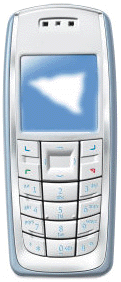...Best of Sicily presents... Best of Sicily Magazine. ... Dedicated to Sicilian art, culture, history, people, places and all things Sicilian. |
by Roberto Paglia | ||
Magazine Index Best of Sicily Arts & Culture Fashion Food & Wine History & Society About Us Travel Faqs Contact Map of Sicily |
So how can it be that cellular telephones became popular in Italy before they were widely used in the United States and many other countries? By 2000, Italy had more cell phones than traditional "land" lines, becoming the first nation to boast this level of wireless use. In that year Italy's three cell networks (Tim, Wind and Omnitel-Vodafone) were already more sophisticated and functional than the American ones. Some think they still are; setting up and using a cell account in Italy has always been remarkably simple compared to doing so in North America. Italians young and old embraced cell phone technology almost overnight. On another front, there were more internet users in Italy than in the United Kingdom (a nation of comparable population) by 1999. How to account for this? There are several reasons rooted in society itself, and few are surprising. A precedent was established in the 1980s, when Italians took their place among the world's leading fax users. Necessity is the mother of invention, and faxes were an easy way to circumvent Italy's corrupt, inefficient postal service. Later, email inherited this role, and while it's true that this has taken place around the world, Italians' need was much more acute because the postal service here never worked very well until quite recently, and it still cannot compete with those of the US and UK. Following a long postal strike in the 1970s, the government authorised the burning of the accumulated mail, including important correspondence, bank drafts and documents, in huge bonfires. In Italy cell phones first became popular with young adults but soon found a niche with teenagers. Many Italian young people live in homes which might be considered small by some countries' standards. In the cities these are typically apartments in large condominiums. Italy is actually a very crowded country with a high population density. Worse yet, young single adults usually live with parents for a long time --even to the age of 35. Having a cell phone allowed a great deal of instant privacy at low cost. Sixteen year-old Maria could stay in touch with her boyfriend, Antonio, without her father, mother or siblings ever finding out. And cell phones made it easy for married people to juggle a full life including one's spouse, children and lovers (extramarital affairs could be cultivated with less fuss if both parties were connected by cell phones they could use anyplace and almost any time). PDAs like the Blackberry have been somewhat slow to sell in Italy, but the cell phone and video phone are sure to be permanent fixtures. About the Author: Roberto Paglia has written several articles for this publication relating to social topics. | |
Top of Page |
 Italians, like people in most countries, usually tend to think
of Americans always being at the cutting edge of technology. It's not hard
to see how this could be. We're reminded of it every time NASA launches
a space shuttle, while the ESA (European Space Agency) has trouble even
getting a probe to Mars. Despite Marconi's development of the wireless (albeit
with ideas shared by others), the fact is that Americans invented the phonograph,
the telephone, the computer and other marvels of modern communication. (Antonio
Meucci, an Italian living in New York, may have invented something similar
to a telephone before Alexander Graham Bell, but it was the patented design
of the latter that found its way into production in the Americas and in
Italy.) And, of course, the first workable television networks were the
three "private" American ones.
Italians, like people in most countries, usually tend to think
of Americans always being at the cutting edge of technology. It's not hard
to see how this could be. We're reminded of it every time NASA launches
a space shuttle, while the ESA (European Space Agency) has trouble even
getting a probe to Mars. Despite Marconi's development of the wireless (albeit
with ideas shared by others), the fact is that Americans invented the phonograph,
the telephone, the computer and other marvels of modern communication. (Antonio
Meucci, an Italian living in New York, may have invented something similar
to a telephone before Alexander Graham Bell, but it was the patented design
of the latter that found its way into production in the Americas and in
Italy.) And, of course, the first workable television networks were the
three "private" American ones.